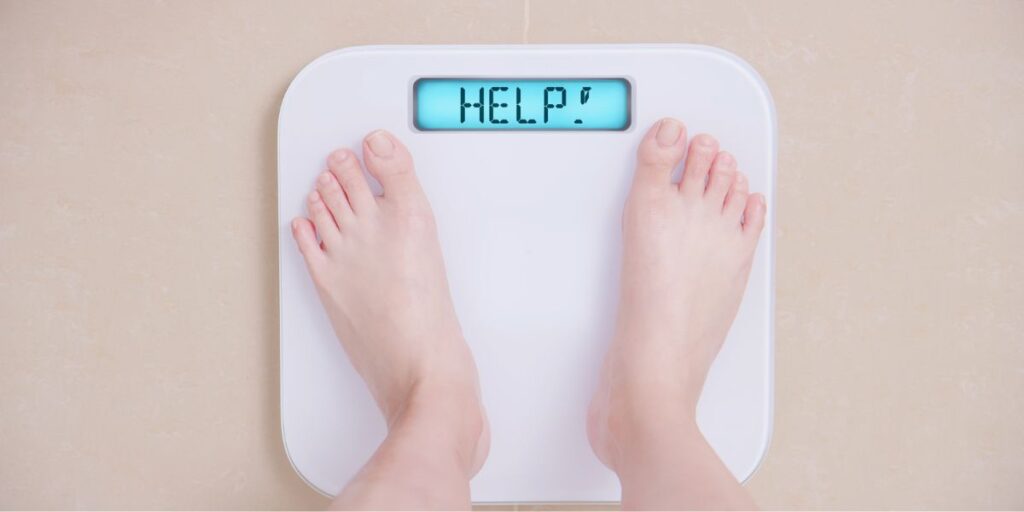
Before we jump into the reasons why Diets fail we’ll check out the word “Diet” first. Most people associate the term diet with a temporary change in consuming food to reduce body weight. However, if you consider the origin of this word, “diet” has an entirely different meaning than what it’s now. The term diet comes from the ancient Greek word “diaita” and was originally used for “lifestyle” or “way of life”. There are many reasons why diets fail and also why many overweight people have already had numerous unsuccessful diets.
So let’s quit wasting time and cut to the chase…
Here are the Top 10 reasons why diets FAIL
1. Gigantic Food Choices
Nowadays, more and more foods are offered in various variations. Of course, with the vast selection, more food is being consumed, making it even more difficult to reduce calorie intake. Needless to say, a varied diet is so important for the supply of micronutrients, which are minerals and vitamins. But when choosing meals, you should also pay attention to the number of calories, especially when it comes to “Ready-to-eat meals”.
2. Jumbo Packs
With the introduction of “Jumbo Pack” foods, we are also being offered above-average portions, which contribute to increased calorie intake. Many people do not experience a natural feeling of satiety. The way some of us experience it is through an empty pack or plate. This indicates that a higher than necessary food consumption can be blamed on jumbo packs. With that in mind, it is advisable to avoid large packs and Ready-to-eat meals to permanently reduce your calorie intake. A healthy measure to increase the satiety signal is to eat foods high in protein and fiber.
3. Forced Diet
A strictly enforced diet with no personal say in a matter of terms will often fail as the pressure against eating restrictions mounts. A planned diet with leeway and flexible rules, as opposed to strict rules, would be a better approach.
4. Muscle Loss – Less Energy Consumption
The goal of a diet is to achieve an energy deficit through food intake, which then leads to the body using its own fat to compensate for an energy source. However, during this process, muscle mass (protein depot) is also broken down, which means that the body will consume less energy in the Future. Less muscle mass consumes less energy, just like a smaller engine on a car would use less gasoline. Exercising and getting essential nutrients can help sustain muscle mass and therefore maintain energy consumption.

5. Fad and Crash Dieting
These are modern and trendy ways of shedding pounds quickly. However, as I mentioned earlier, a diet should ideally be a lifestyle change in food intake and physical activity, which can be sustained over a very long period or even forever. Fad and crash diets will only be a quick fix until old habits come back and so does the extra weight.
6. Genetics
In the Paleolithic age, when men were hunters and collectors, they had to hunt for food to survive. During a period of abundant food, fat was stored so it could allow us to survive during times of scarcity. So, our bodies have been programmed in such a way that we store food as energy in the form of fat and reuse it to avoid starvation. It is clear that the constant excess of food which we have nowadays goes against the natural way in which our body is programmed.
7. Routine Eating Habits
From birth on, our parents taught us an “eating routine”. We were raised to eat meals at certain times, whether we were hungry or not. This routine is very difficult to change. However, changing this routine to eating when we are hungry could lead to weight loss.
8. Unrealistic Goals
Setting an unrealistic goal will, in most cases, only lead to a lack of motivation. 40 pounds in 6 weeks is very unlikely and probably not recommended from a medical point of view. Instead, you should realistically plan a goal for a point in time that is set in a more distant future and motivate yourself with milestones in the meantime.
9. Social Field Lack of Involvement
The social environment can strongly influence eating behavior. So, if the people you socialize with are more health-conscious, the chances of a successful change in diet increase exponentially. Ideally, your spouse or partner would join in on the diet, which can positively influence the outcome.
10. Stagnation of Weight Loss
Reasons why diets fail can also be caused by lack of motivation. At the beginning of a diet, you always see quick results. In the course of the diet, however, these successes become less and less, and eventually leads to a so-called plateau. This phenomenon is quite natural, but in many cases, it makes motivation dwindle. In this case, you should not assume that the diet has failed, as you will quickly revert to old eating habits which inevitably lead to weight gain. Here, it helps to create a graphic representation of the weight reduction over some time to visualize the progress you have made.
So now you heard of 10 Reasons why Diets Fail, you can easily navigate around failing your next attempt at losing weight and changing your lifestyle for the long run.
Are you ready and hyped to get back on the healthy track?
Learn 9 simple ways how you can easily start losing weight now!
Sources:








[…] if not your body is going to take protein from your muscles to get energy which will result in your muscles getting smaller, so it is very important to eat healthy food with a lot of protein, carbohydrates and fiber. So […]
[…] Also, if you’re trying to lose weight a main reason a Diet will fail are unrealistic goals […]